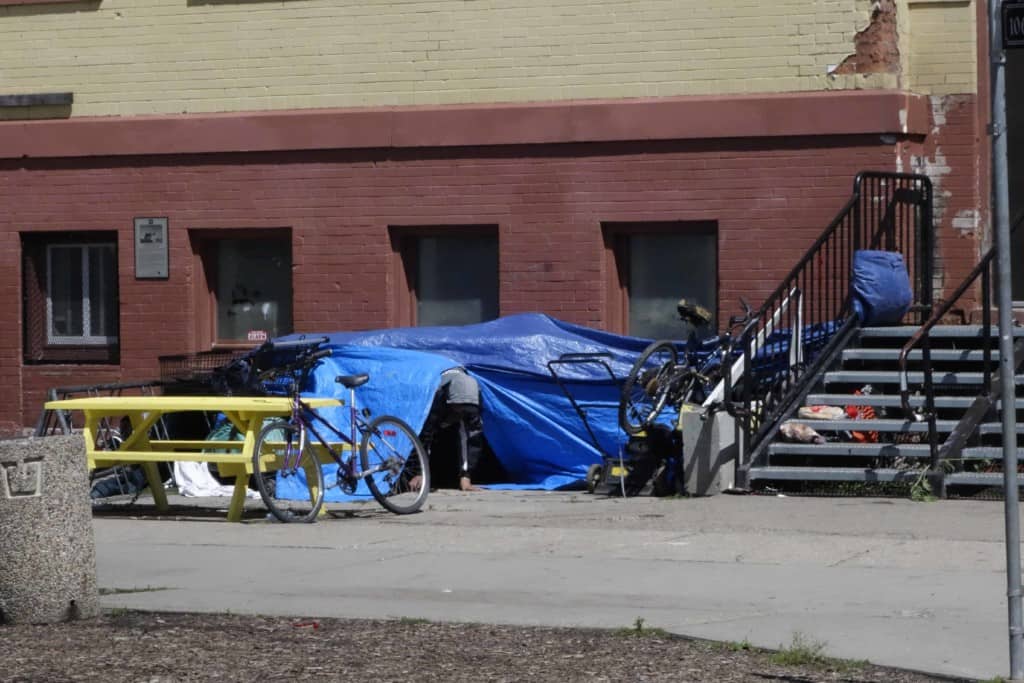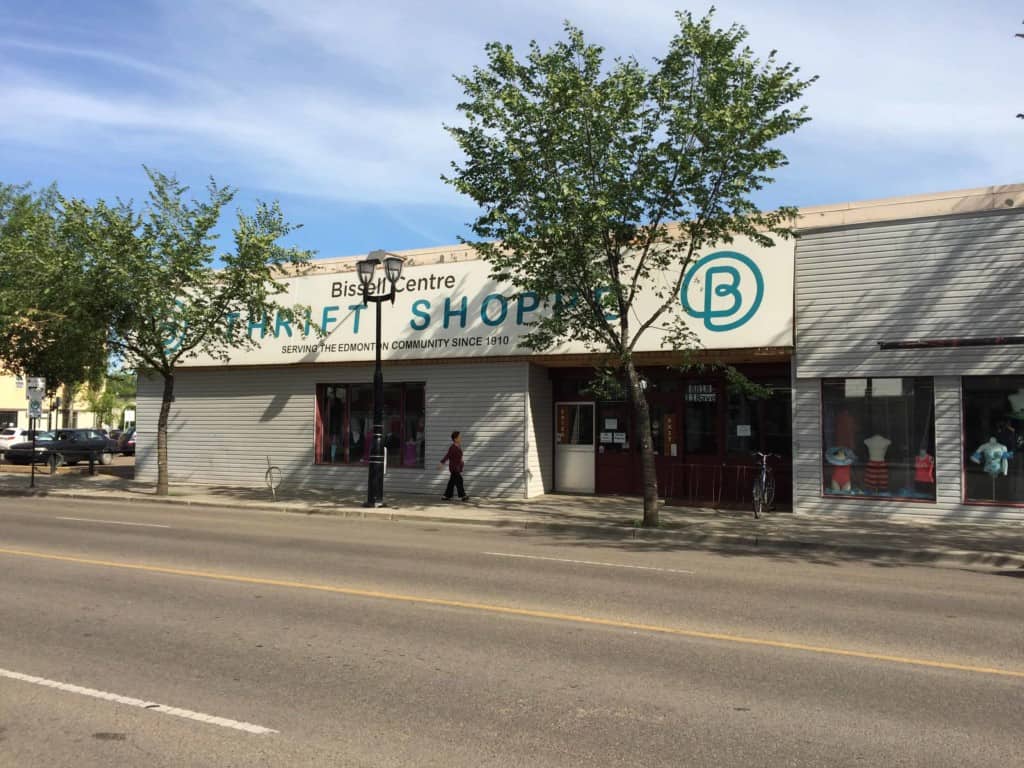Supporting a local social enterprise
I am orienting an intern to social service supports in the inner city, one of my intriguing job opportunities as a social worker in the hood. We are in front of the Bissell Centre on 105 Avenue and 96 Street, gingerly stepping around an assortment of shopping carts and bicycles with their guardians standing by, smoking, socializing, sleeping. We make our way inside.
“Aren’t you scared?” my intern asks. “All these homeless people. Doesn’t anyone attack you or threaten you?”
Apparently the assumption is that if someone is homeless or dependent upon social services, they are somehow morally deficient. It’s a common misunderstanding.
“I cycle by here most work days to check up on a few of my clients. With any luck, I will find one drinking coffee or using the washing machine or talking with staff. I consider that a good thing,” I respond.

I make an appointment to chat with Devin Komarniski, media contact for the Bissell Centre, to get his take on why people become homeless.
“Certainly there are the economic causes; a lack of sustainable affordable housing, low minimum wage, lack of support networks. But apart from these, you can’t give a blanket reason,” said Komarniski. “Everyone has their own story. People are on the street because they have no support networks to fall back on in hard times. They get caught in a downward spiral of depression, loneliness, and addiction. Most have lived with trauma, conflict, victimization. Many are merely mimicking dysfunctional patterns learned from inter-generational poverty.”
He continued, “That is where we come into play. Our motto is: Support each person in their individual journey out of homelessness.”
The Bissell’s objective is to create a safe and inclusive environment that provides opportunities for reflection, healing, and reconciliation, so that people can get out of the cycle of poverty and homelessness.

Support is provided to 600 families through different programs. For those who qualify for the Early Childhood Development program, childcare is free on a temporary basis, while the Family Support Services staff often provide single moms in financial distress with diapers and formula. A loan equivalent of one month’s rent is available through the Community Bridge program, funded by Enbridge, for families facing eviction. The program also addresses why eviction occurred so that it doesn’t happen in the future. Financial literacy and budgeting is provided in conjunction with the financial support.
Day-to-day supports at their drop-in centre include food and coffee, clothing, showers, laundry hygiene items, phone, Internet, haircuts, and foot care. Educational supports include housing workshops, employment, mental health services, addictions counselling, victim services, skills training, literacy workshops, computer classes, arts and recreation programs, drumming circles, and smudges.
Over 100 unique individuals are assisted every week. The newly-renovated facility is spacious, attractive, with washing machines and showers available free of charge.
In addition to the administrative building and day-use centre on 96 Street, there is the Bissell Thrift Shoppe on 88 Street and 118 Avenue; Hope Terrace, a residential facility for adults with FASD (Fetal Alcohol Spectrum Disorder) near the Stadium; and Moonlight Bay Centre on Lake Wabamun, a summer camp providing an escape from the pressures of the city.
I suppose the confusion of my intern is understandable. On a quick drive by, you don’t gain the insight that this is a learning community where people are working to better their situation.
Those who wish to support the Bissell Centre and its clientele can do so in a variety of ways.
“We have more than 900 active volunteers,” Komarniski boasts with a broad smile.”Sign up to help, or donate or shop at the clothing store. There are always lots of opportunities.”
For more information, visit www.bissellcentre.org/communityspace.
Featured Image: The Bissell Centre helps support 600 families. | Aydan Dunnigan-Vickruck







